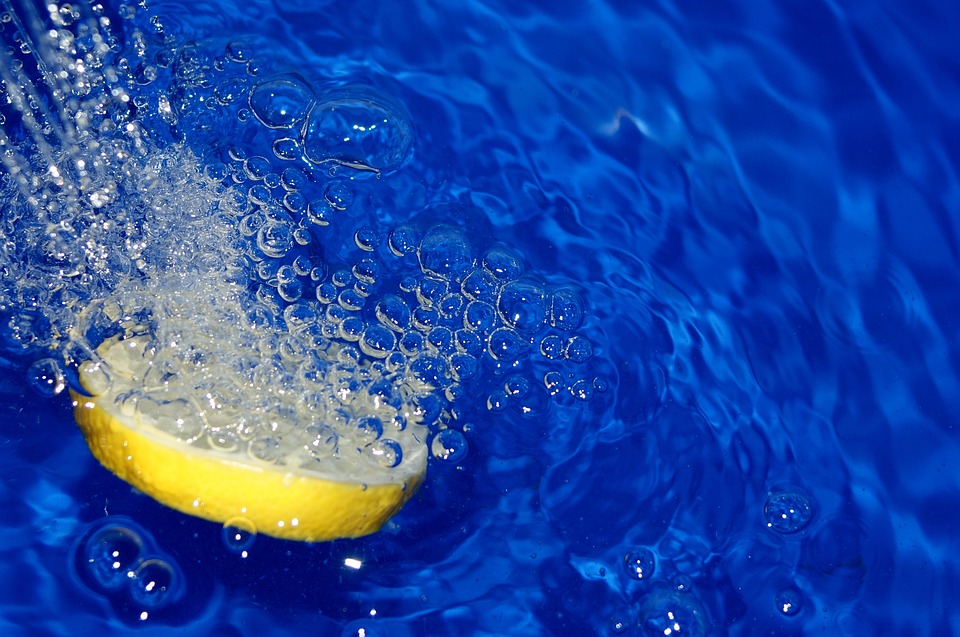


A few quick thoughts about “Lemonade.” The sheer volume of chatter and think pieces about Beyoncé’s recently released visual album speaks to the paucity of spaces Black women can collectively share their trauma and pain and the attempts to heal from it. Regardless of where one stands on the cusp of fan or nah, Beyoncé’s identification of Black womanhood in terms that are not contingent upon it being identified as a problem makes “Lemonade” worthy of our attention. And this is also true for the scores of black women who identify as Christian.
Visually, “Lemonade” is quite simply, stunning. The way it was filmed, the use of color and the juxtaposition of black and white, the down by the riverside familiar southern imagery all converge to make Lemonade more like lemon pound cake for the eyes. I was a bit disappointed reading through the various stations of my social media presence when I saw that a lot of ‘churched’ women took issue with Beyoncé’s use of conjuring, of African traditional religions, her dress and lack thereof, and her choices of verbal expression (read: the cussin’). Before we get stuck on this, let’s parse that opening scene out a bit more. When we first see Beyoncé, she is more vulnerable than we are used to seeing her. She is without the usual trappings of glamour; we see her alone in a field, then alone on a stage. She looks like a woman in despair. We see her leap from a building only to plunge deeply into a body of water. And water is one of the most used symbolic images in the Bible. (Did I mention that you also see a Bible in the water with her?)
If I were to use the opening scenes of “Lemonade” as a Bible study, I would use John 5: 1-13 as my centering text. This is the passage where Jesus heals a man who had been ill for 38 years by the pool called Bethesda, Bethsaida or Beth-zatha depending on your preferred Bible translation. I like this text because it is controversial, much like “Lemonade” has been considered controversial. Part of what makes this text in John controversial is the omission in many Bible versions of verse four, the passage that states the hurting people by the Bethesda pool were waiting for ‘an angel to stir the waters; whoever stepped in first after the stirring of the water was made well from whatever disease that person had.’ For many people, this verse sounds too much like conjuring and magic to have anything to do with Jesus. Never mind that a good portion of what we have come to know and participate in as African-American Christianity is highly influenced by African traditional religions, as well as Caribbean, Jamaican, Brazilian, Haitian, and other traditions. From the ring shouts of slave religion to the liturgies we hear in the churches we now belong to, contemporary Black religious traditions are syncretistic…a fancy word that means it is the sum of many eclectic parts; the merging of many religious and cultural patterns.
What Jesus does for the ill man by Bethesda’s pool is similar to what I read Beyoncé attempting to do in “Lemonade:” getting us to take part in our own healing. When Jesus talks to this man, whom I like to refer to as ‘Long Time Leroy,’ it is clear that Leroy wants Jesus to help him get into the pool so he can be first. When Jesus asks him if he wants to be made whole, his reactionary response—like a lot of us—was to make excuses. “I don’t have anyone to put me in the pool when the water is stirred up,” he says. Leroy has been hurting a long time. Thirty-eight long years. His response is not uncommon when one is in pain: we want someone, anyone, anything, to help us to get out from under it. Jesus could have easily said “be healed” and kept it moving. But Jesus does not do that. When Jesus orders the man to “stand, take up your mat and WALK,” what if Jesus is challenging him to re-think his thinking about his situation? What if what Jesus is really asking him is, “are you willing to change your condition?”
Beyoncé’s “Lemonade” presents Black women with a similar opportunity. Are we willing to change our condition? Are we willing to change the way we think about things? About our beauty, our worth, our relationships? Her use of the outstanding body of work by poet Warsan Shire shows us how our consciousness can and must change in order for us to become the best versions of ourselves. And like the syncretism in our religious traditions, healing also deals with the breakdown of old patterns, mindsets and sources of identity.
The work I am called to do is to interpret the Scriptures in ways that are liberating for Black women. Far too often the Bible is used to secure our status as second-class citizens. I identify this as a problem that ends up silencing us. When we get stuck on debating whose take on a text is the ‘right’ one, we can miss opportunities like this to see the ways in which the Holy Scriptures can inform pop culture, contemporary discourse, and speak to us afresh.
I do not think Beyoncé’s use of water is accidental. Water is powerful imagery. One of the ordinances of the Christian faith is baptism. Baptism is symbolic of death, rebirth, and resurrection. When we are baptized, it is a visual demonstration of an inward change, the death to an old life and rebirth to a new life. Think about how crucial water is to Jesus’ encounter with the woman at the well. Living water. A water source from deep within that has the power to change us, stirring from within, bubbling up and relieving our thirst. The premise of John 5, a stirring in the water that provides healing power, is so important for Black women…we who have often been handed life’s lemons. Yes, being a black woman often means an overabundance of them. As Zora Neale Hurston put it, “I have been in sorrow’s kitchen and licked the pots clean.” But there is no lemonade without a source of living water. As you sip your lemonade, think about your ancestors, those women in your family upon whose shoulders we all stand. The women who have used life’s lemons to carve out their own paths and find alternate routes. I often say that it had to be a Black woman who suggested cutting the hole in the roof at Peter’s house to lower the paralytic man down to Jesus…because if anyone knows an alternate route to the top, it’s a Black woman. “Lemonade” is a celebration of Black girl/woman ingenuity. Even Jesus reminds us that self-love is a radical act. Self-love is also a key part of the greatest commandment, and it is conditional: to love others as we love ourselves.